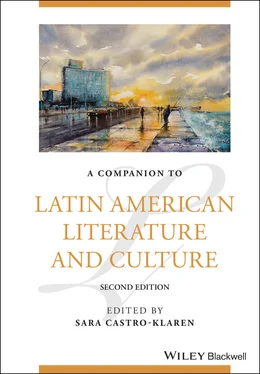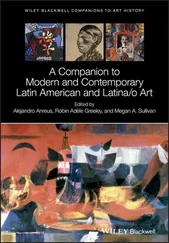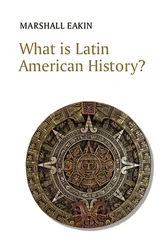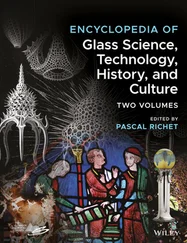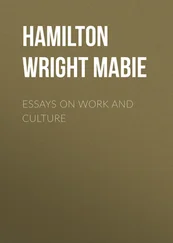Javier Sanjinés C.is Associate Professor of Latin American Literature and Cultural Studies at the University of Michigan-Ann Arbor. He has also been a visiting professor at Duke University and at Universidad Andina Simón Bolívar, in Quito, Ecuador. Sanjinés has published three books. His most recent is Mestizaje Upside-Down (2004). He has just fi nished a manuscript on the crisis of historical time in the Andean region.
Freya Schiwyis Professor of Media Cultural Studies and a cooperating faculty member in the Hispanic Studies Department at the University of California, Riverside. She is author of Indianizing Film. Decolonization, the Andes, and the Question of Technology (Rutgers University Press, 2009) and The Open Invitation. Activist Video, Mexico, and the Politics of Affect (University of Pittsburgh Press, 2019). Together with Byrt Wammack Weber, she coedited Adjusting the Lens. Community and Collaborative Video in Mexico (University of Pittsburgh Press, 2017) and she is one of the editors of the Journal for Latin American Cultural Studies .
Nicolas Shumwayis the Tomás Rivera Regents Professor of Spanish Language and Literature at the University of Texas at Austin. His book The Invention of Argentina (1991) was selected by The New York Times as a “Notable Book of the Year” and appeared in a revised version in Spanish in 2005. He has also published numerous articles on the literature and cultural history of Spanish America, Brazil, and Spain, and been a visiting professor at the Universidade de São Paulo as well as at the Universidad Torcuato Di Tella and the Universidad San Andrés in Buenos Aires.
Amanda M. Smithis Assistant Professor of Latin American literature at the University of California, Santa Cruz, and founding co-chair of the Amazonia section of the Latin American Studies Association. She publishes and teaches on 20th- and 21st-century Latin American cultural production in dialogue with the environmental humanities, spatial humanities, and Indigenous studies. Her book, Mapping the Amazon: Literary Geography after the Rubber Boom , examines how literary texts have both overlapped and clashed with institutional projects that divide Amazonia into cultural and economic spaces.
Abril Trigois Distinguished Humanities Professor of Latin American Cultures at the Ohio State University. He is the author of Caudillo, estado, nación: Literatura, historia e ideología en el Uruguay (1990), ¿Cultura uruguaya o culturas linyeras? (Para una cartografía de la neomodernidad posuruguaya) (1997), Memorias migrantes: Testimonios y ensayos sobre la diáspora uruguaya (2003) and The Latin American Cultural Studies Reader , coauthored with Ana Del Sarto and Alicia Ríos (2004). Currently, he is working on Muerte y transfi guración de los estudios culturales latinoamericanos , a book-length essay on the effects of globalization on Latin American cultures, and Crítica de la economía politico-libidinal , a theoretical inquiry on the political economy of contemporary culture.
Gustavo Verdesiois Associate Professor of Spanish and Native American Studies at the University of Michigan. A revised version of his book La invención del Uruguay. La entrada del territorio y sus habitantes a la cultura occidental (1996) has been published as Forgotten Conquests. Rereading New World History from the Margins (2001). He coedited (with Alvaro F. Bolaños) Colonialism Past and Present. Reading and Writing about Colonial Latin America Today (2002), and edited issue 52 of the journal Dispositio/n (2005), dedicated to the Latin American Subaltern Studies group. His articles have appeared in journals such as Settler Colonial Studies , Revista Iberoamericana , and Arqueología Suramericana .
Lesley Wyllieis Associate Professor of Latin American Studies at the University of Leicester, UK. She works on Latin American literature and culture from the late nineteenth century to the present, with a focus on the intersections between literature and the environment. She has published books on the novela de la selva and the literary geography of the Putumayo. In 2017 she was awarded a Leverhulme Research Fellowship to complete her most recent monograph, The Poetics of Plants in Spanish American Literature (University of Pittsburgh Press, 2020). She is Associate Editor of the Bulletin of Spanish Studies .
For the second edition, I want to acknowledge the dedication and generosity of all the colleagues who, despite the disruption, hardships, and turmoil brought about by the pandemic of 2020, not only agreed to write for this Companion but sent a set of brilliant, insightful, and intensely researched essays. The Companion has not only been updated but it has gained gravity as scholars writing in the awareness of this fateful year, the deep transformational forces at play that the pandemic has brought to the fore, implicitly reflect on the meaning of this broad, pervasive, and irreversible change.
I need to thank all graduate and undergraduate students who over the years—long after graduation—have worked with me in the most stimulating, singular, and long-lasting scholarly dialogue. The youngest among them is Mariangela Ugarelli who has also assisted with the preparation of the manuscript for this second edition. Knowing that she could handle the Excel page has been a great comfort in dealing with the logistics of the project.
And of course, I once again acknowledge deeply the companionship, patience, and curiosity of Peter Klaren, who although not a literary scholar has read every draft in order to offer his critical appraisal and act in the place of the ideal reader of this Companion .
CODA. Companion 2022: As the World Turns…
Sara Castro-Klaren
Codas are by definition short interventions. Codas constitute an attempt to reach a satisfactory, though perhaps always temporary, closing to the musical piece unfolding. A Companion to Latin American Literature and Culture did, in the first edition as it does in this second edition, represent a kind of musical composition where pleats fold and unfold into inner and forward creases, tucks, and crevices that seem never ending. Conceived as such, a coda at this moment in history acquires the hue of a paradox, in that it both closes and opens the discussion on Latin American culture writ large.
Great change has occurred in Latin America in the last quarter century. Besides a turn to the left that never took place, people in Brazil and Spanish America along with many Indigenous communities living within the borders of various nation-states have experienced and continue to undergo the transformation brought about by the digital forces in play today. The forces of globalization, of which the digital age is only a part, have been exacerbated during the 2020 pandemic as people have been forced to communicate and interact more intensely via the internet, making use of every platform available for multiple purposes of exchange. Together, the pandemic and the digital transformation have repositioned subjects, fractured borders, reconfigured modes of production and realigned personal, social, and political relations. In this context, the paradoxical valance of a coda, as both summary ending but also opening onto uncharted waters, seems justified as a brief introduction to the new and enlightening chapters that comprise the volume in this second edition.
The last time I wrote in this space, we had just entered the new millennium. I suggested then that one of the best ways to understand the history of the unfolding of Latin America was to keep in sight its colonial genealogy and so, the concept of colonial semiosis, imagined as a deep, permanent, and pervasive exchange of signs across all human practices and experiences, seemed to be a good place to start. The unfettered exchange of signs and systems of signs that colonial situations entail – despite restrictions and hegemonic rules imposed by the colonizers – opens the way for the appearance of new forms, unsuspected places of enunciation, agencies, the formation of new subjects, new modes of communication and, of course, the emergence of new forms of oppression and dominance as well. Colonial semiosis is never separate from struggle, from loss, from resistance, and from appropriation. However, it is precisely in the space of contention, fraught with epistemological violence, where new subjects, voices, and practices arise. In a way, the multiple and divergent processes and experiences of colonial semiosis reside at the gate of modernity for both the colonizer, who takes “back” the experience and goods from the colonies, and the colonized who struggle to muster the forces necessary to resist and maybe even survive as well as lay the foundations of the variegated modernities that we have come to know and grapple with.
Читать дальше
